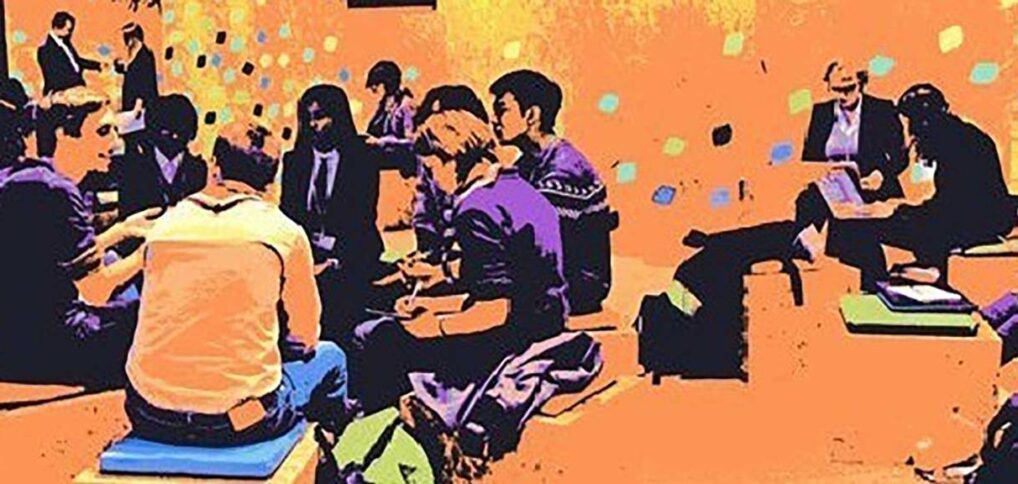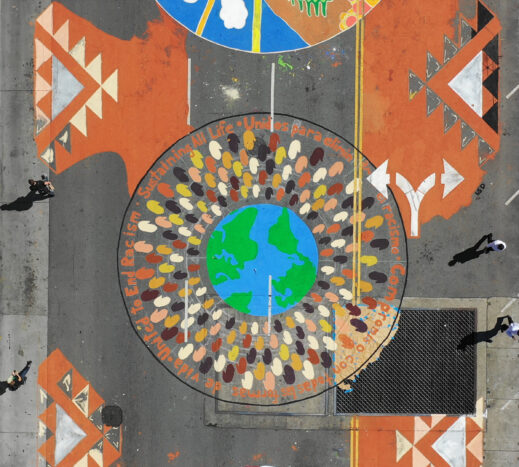
We Central and Eastern Europeans have for many centuries lived with an awareness of, and in partnership with, the environment around us. Sustainable agriculture and livestock rearing, responsible forestry, and ancient handicrafts and rituals that connect us to the land and natural world are deeply embedded in our cultures.
Roma/Gypsy people have from the earliest times been an integral part of Central and Eastern European societies. The total number of Roma in Europe is estimated at 10 million. Roughly half of them (5 million) live in Central Eastern and South Eastern European countries. Roma are the only truly transnational people living in Europe. They have shared valuable knowledge—particularly about building, metalwork, medicine, connecting with animals, and nurturing communities and relationships—and their work has built much of our common civilizations. Because Roma did not “move with the times” in the same way as the mainstream, they have often preserved the culture and science of the majority populations.
In this way, Roma became the guardians of forgotten values of the dominant people, and then these values were “re-gifted” to the dominant people as music, dance, and connection to the land. Along with Romani/Gypsy people, all Central and Eastern Europeans have ancient skills, knowledge, and ways of organizing communities that could make a big difference to environmental movements. But this knowledge and these abilities have often been ignored, rejected, and overtaken by dominant economies and cultures.
Central and Eastern Europeans have been oppressed by a number of large empires that surround us. Our traditional communities have been replaced by societies modeled on global capitalism— societies based on greed, corruption, individualism, nationalism, xenophobia, antigypsyism,*1 and racism. This has divided us from each other and also from the majority of the world’s population (Indigenous people and people of African, Asian, Pacific Islands, Caribbean, and Latin American heritage), who are at the forefront of fighting against climate change.
All this has limited the effectiveness of the environmental movements in Central and Eastern Europe. It has kept us from challenging the degradation of our natural environments—the contaminated soil, polluted water, and destruction of wildlife habitat—and made us collude with extensive coal, gas, and mineral mining. Roma are the most marginalized communities. They are the most affected by the policies that do not place communities, nature, and wellbeing in the center of development, but instead concentrate on economic growth. Roma are also left out of development, although they use the least resources.
But still the situation is hopeful. It is possible to limit the effects of climate change and completely restore the environment. Big problems require big solutions, and the people of Central and Eastern Europe can play a key role in finding solutions that leave no human behind; that do not pit one group against another; that do not allow one group to benefit by taking advantage of another; that focus on collaboration, not division; that unify more and more people; and that focus on decisive actions to sustain all life.
We also need to become aware of where we may have “benefited” from oppressive policies and recover from the confusions that have led us to not challenge them. Sustaining All Life and United to End Racism offers tools—for example, telling our personal stories—that can help us heal from how we have been affected by
- war and other violence;
- antigypsyism and other oppressions;
- economic crises;
- poverty;
- reliance on fossil fuel;
- divisive policies of narrow nationalism and xenophobia
With healing comes clearer thinking and more accurate perspectives that make it possible to build a united environmental movement and create big solutions. As a united force, the people of Central and Eastern Europe, including Romani/Gypsy people, can play a key role in sustaining all life on Earth.
************************************
* Antigypsyism is the racism directed at Roma, Gypsy, and Sinti people; Travellers; and others who are stigmatized as “gypsies” in the public imagination. It is often used in a narrow sense to indicate anti-Roma attitudes, or negative stereotypes or hate speech in the public sphere. However, it includes a much wider spectrum of discriminatory practices, such as not valuing the contribution these groups make to society and to climate change activism.


